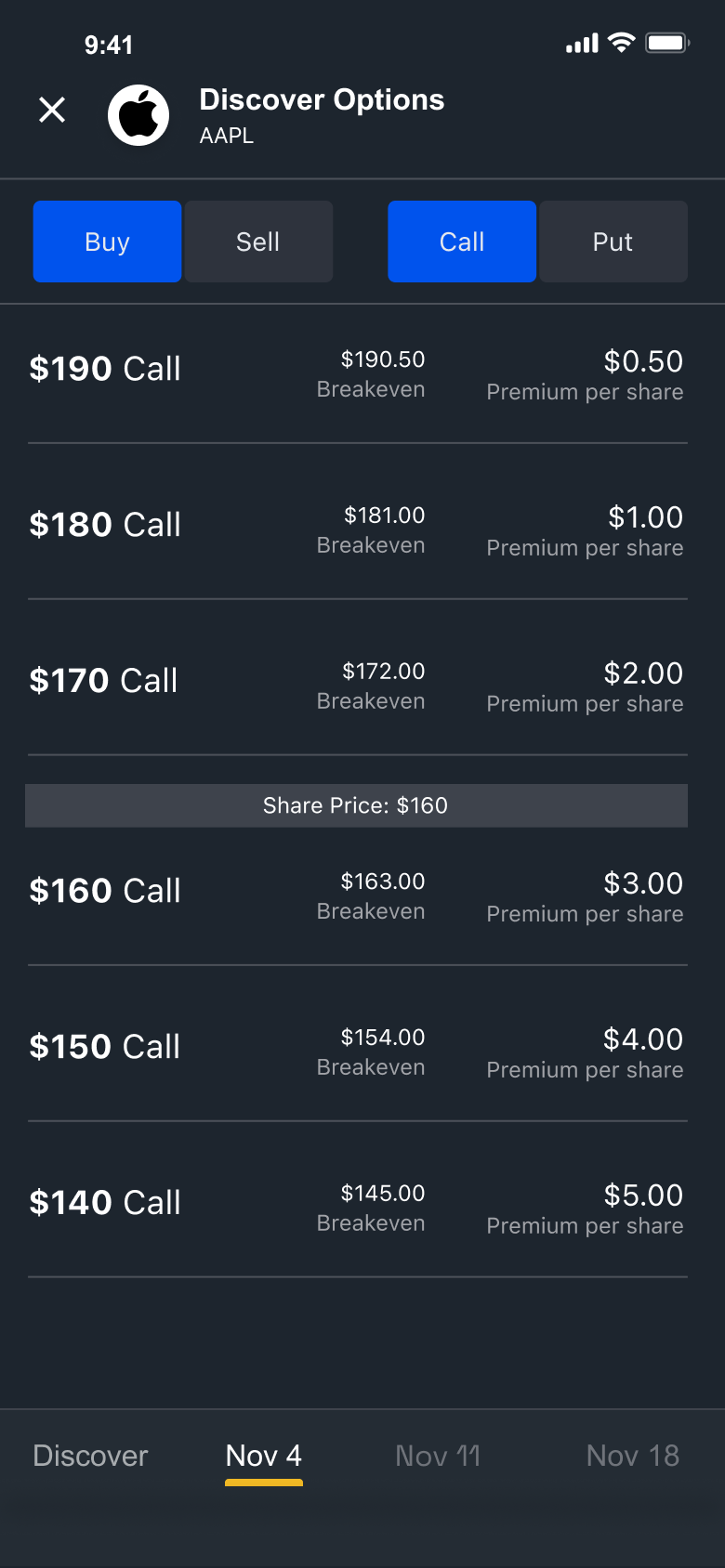Options
An option is a derivative that allows the holder the right to purchase or sell securities at a predefined price (called the "strike price"). Options are issued against a variety of Equities, and typically 1 contract represents 100 shares of the underlying equity.
Types of options
- Call options allow the holder to purchase the underlying at the strike price, on or before the expiration date
- Put options allow the holder to sell the underlying at the strike price, on or before the expiration date
Buying an option contract
Not all investors are qualified to trade options, based on their prior experience with investing. Each Account must be individually enrolled before placing a trade. Learn more in Enabling options access.

DriveWealth supports options trading on Equity and ETF underlyings. Equity & ETF options trade on public exchanges on trading days from 9:30am to 4pm ET. Options on a small subset of broad-based ETFs trade from 9:30am to 4:15pm ET. During trading hours, orders are accepted to buy and sell at a price specified by the customer. The price of every contract updates every few milliseconds to represent the last trades that took place.
Typically, finding options to buy starts with picking an underlying security. Once a security is picked, an investor can narrow down the list of candidate option contracts by expiration date and strike price.
Learn more and review specific implementation details in Showing options chains.
DriveWealth currently supports Level 2 options trading, which means that investors have the ability to buy Call Options and Put Options, and then sell out of these positions.
DriveWealth partners can leverage the Orders API used for other asset classes to submit options orders. Additional order validations exist to ensure that appropriate options attributes are included in the order submission.
Please refer to Creating an order for implementation details and an example of placing an options order.
Owning an option contract
Investors can check information about their open options positions alongside other asset class positions that they may hold with DriveWealth.
Please refer to Getting balances and positions for more details on reviewing an account’s position summary, inclusive of options positions
During corporate actions
Corporate actions that affect the underlying security (splits, dividends, mergers, etc.) typically also affect options. In most cases, the original option Instrument is marked INACTIVE, and a new option Instrument is created for existing positions.
Options corporate events consist of a bit more data because of updates that need to be made to the instrument and option positions. When an option corporate action event does occur there will be four (4) events created:
- Two instrument.updated events (expiring the pre-existing symbol, and setting the new symbol as active)
- Two positions.updated (removal of the position in pre-existing symbol and adding a position in the new one).
Please refer to Corporate actions for more details.
On expiration day
On expiration day, the OCC may automatically exercise options positions that remain open after market close if they’re at least $0.01 in-the-money. Investors are expected to manage their options positions leading up to expiration.
DriveWealth reserves the right to liquidate positions leading up to market close on expiration day in order to mitigate risk. Beginning at 2pm ET on expiration day, resting orders will be cancelled and no new orders will be accepted in options contracts expiring that day. DriveWealth will begin evaluating positions for liquidation at 3pm ET.
If a position held in an account expires worthless and with no liquidation activity, it will be removed from the account.
Updated 6 months ago